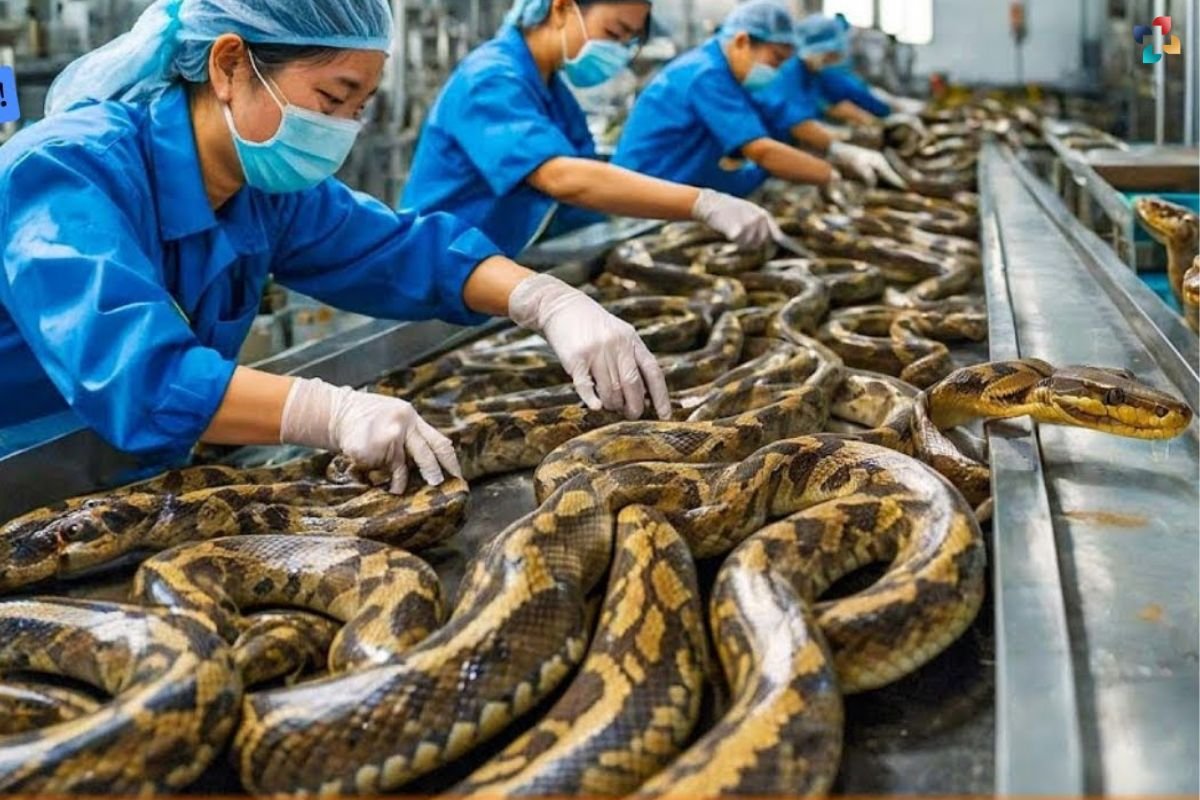Exploring the Benefits of Python Farming
A recent study published in the journal Scientific Reports has revealed the promising potential of python farming as a new form of sustainable livestock production. Traditional livestock rearing, which has long supported global economic growth, typically focuses on energy-intensive, warm-blooded animals. However, climate volatility, resource limitations, and the impacts of infectious diseases are challenging these conventional systems, prompting a need for alternative solutions.
Researchers suggest that cold-blooded (ectothermic) animals like pythons, which are 90% more energy-efficient than their warm-blooded counterparts, could significantly improve production efficiency. In many tropical countries, snakes are already a common protein source with substantial food, cultural, and medicinal value. With a growing demand for snake meat and related products, there has been an expansion in python farming, making it a viable option for commercial use.
Study Insights from Vietnam and Thailand
The study evaluated the commercial potential of two python species—Burmese pythons (Python bivittatus) and reticulated pythons (Malayopython reticulatus)—at farms in Ho Chi Minh City, Vietnam, and Uttaradit, Thailand. Researchers monitored python growth over a year, collecting data on snout-vent length (SVL) and body mass at various intervals. Pythons were fed a diet of chicken, rodents, and sausages, with hatchlings initially given vertebrate prey.
In Vietnam, an intensive growth trial was conducted, testing five different diets on a subset of pythons to assess their impact on growth rates. The results showed that both python species exhibited rapid growth, with females growing faster than males. Notably, pythons with higher food consumption in the first two months continued to grow rapidly throughout the year.
Potential for Sustainable Food Systems
The findings indicate that while 61% of Burmese pythons experienced fasting periods, they showed minimal body mass loss and some even gained weight during fasting. Larger pythons tended to fast for longer periods, which reduced their overall growth rate but did not significantly impact their body mass. The study reported an average food conversion ratio (FCR) of 4.1, meaning pythons consumed 4.1 grams of food for every gram of dressed carcass produced, with 82% of the snake’s mass being useable.
This initial exploration into python farming suggests it could offer substantial benefits for sustainable food systems. By integrating python farming with existing livestock production, regions facing food security challenges due to climate change could gain a resilient and efficient protein source. Further research is needed to fully understand the agricultural potential of reptiles and develop practical and humane farming methods.
Overall, the study highlights python farming as a promising alternative that could complement current livestock systems, providing greater production efficiency and better returns in the face of global challenges.








